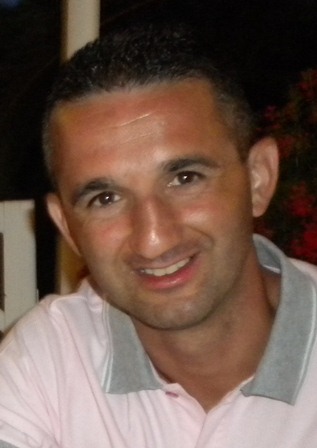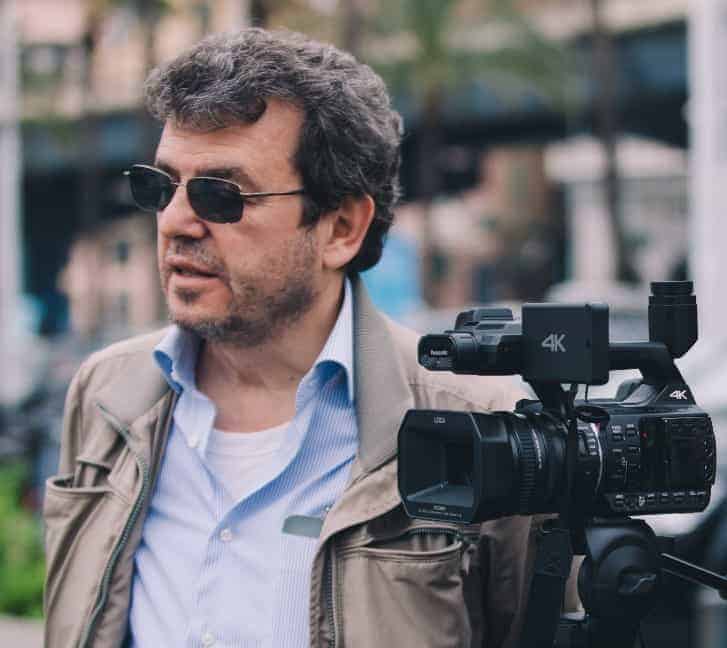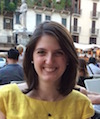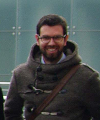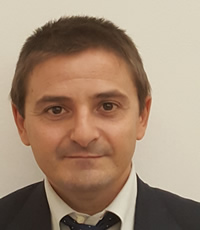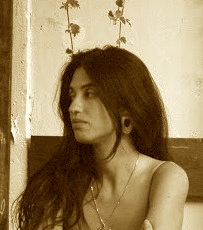Studying at the University of Verona
Here you can find information on the organisational aspects of the Programme, lecture timetables, learning activities and useful contact details for your time at the University, from enrolment to graduation.
Academic calendar
The academic calendar shows the deadlines and scheduled events that are relevant to students, teaching and technical-administrative staff of the University. Public holidays and University closures are also indicated. The academic year normally begins on 1 October each year and ends on 30 September of the following year.
Course calendar
The Academic Calendar sets out the degree programme lecture and exam timetables, as well as the relevant university closure dates..
| Period | From | To |
|---|---|---|
| Sem. IA (31.10.16 sosp.lezioni) | Oct 3, 2016 | Nov 12, 2016 |
| Sem. IB | Nov 14, 2016 | Jan 21, 2017 |
| Sem. IIA | Feb 27, 2017 | Apr 22, 2017 |
| Sem. IIB | Apr 24, 2017 | Jun 10, 2017 |
| Session | From | To |
|---|---|---|
| Sessione d'esami invernale | Jan 23, 2017 | Feb 25, 2017 |
| Sessione d'esame estiva | Jun 12, 2017 | Jul 29, 2017 |
| Sessione d'esami autunnale | Aug 21, 2017 | Sep 23, 2017 |
| Session | From | To |
|---|---|---|
| Sessione di Laurea Estiva | Jul 10, 2017 | Jul 15, 2017 |
| Sessione di Laurea Autunnale | Dec 18, 2017 | Dec 21, 2017 |
| Sessione di Laurea Invernale | Mar 23, 2018 | Mar 29, 2018 |
| Period | From | To |
|---|---|---|
| Festa di Ognissanti | Nov 1, 2016 | Nov 1, 2016 |
| Festa dell'Immacolata | Dec 8, 2016 | Dec 8, 2016 |
| Vacanze Natalizie | Dec 23, 2016 | Jan 7, 2017 |
| Vacanze Pasquali | Apr 14, 2017 | Apr 18, 2017 |
| Festa della Liberazione | Apr 25, 2017 | Apr 25, 2017 |
| Festa dei Lavoratori | May 1, 2017 | May 1, 2017 |
| Festa del Santo Patrono - San Zeno | May 21, 2017 | May 21, 2017 |
| Festa della Repubblica | Jun 2, 2017 | Jun 2, 2017 |
| Vacanze Estive | Aug 14, 2017 | Aug 19, 2017 |
Exam calendar
Exam dates and rounds are managed by the relevant Culture and Civilisation Teaching and Student Services Unit.
To view all the exam sessions available, please use the Exam dashboard on ESSE3.
If you forgot your login details or have problems logging in, please contact the relevant IT HelpDesk, or check the login details recovery web page.
Should you have any doubts or questions, please check the Enrollment FAQs
Academic staff
 maurizio.boscaini@univr.it
maurizio.boscaini@univr.it
 paolamaria.caleffi@univr.it
paolamaria.caleffi@univr.it
 andrea.capuzzo@univr.it
andrea.capuzzo@univr.it
 paolodalben@tin.it
paolodalben@tin.it
 mila.dallapreda@univr.it
mila.dallapreda@univr.it
 ettore.deangeli@univr.it
ettore.deangeli@univr.it
 maxclaudiogallo@gmail.com
maxclaudiogallo@gmail.com

Mastrocinque Attilio
 attilio.mastrocinque@univr.it
attilio.mastrocinque@univr.it
 +39 045802 8386
+39 045802 8386
 marco.menato@univr.it
marco.menato@univr.it

Migliorati Lorenzo
 lorenzo.migliorati@univr.it
lorenzo.migliorati@univr.it
 045802 8135
045802 8135
 flavia.palma@univr.it
flavia.palma@univr.it
 alberto.scandola@univr.it
alberto.scandola@univr.it
Tani Stefano
 stefano.tani@univr.it
stefano.tani@univr.it
 +39 045802 8110
+39 045802 8110
 ivan.valbusa@univr.it
ivan.valbusa@univr.it
Study Plan
The Study Plan includes all modules, teaching and learning activities that each student will need to undertake during their time at the University.
Please select your Study Plan based on your enrollment year.
1° Year
| Modules | Credits | TAF | SSD |
|---|
2° Year activated in the A.Y. 2017/2018
| Modules | Credits | TAF | SSD |
|---|
3° Year activated in the A.Y. 2018/2019
| Modules | Credits | TAF | SSD |
|---|
| Modules | Credits | TAF | SSD |
|---|
| Modules | Credits | TAF | SSD |
|---|
| Modules | Credits | TAF | SSD |
|---|
| Modules | Credits | TAF | SSD |
|---|
Legend | Type of training activity (TTA)
TAF (Type of Educational Activity) All courses and activities are classified into different types of educational activities, indicated by a letter.
Type D and Type F activities
| years | Modules | TAF | Teacher |
|---|---|---|---|
| 1° 2° 3° | Laboratory of History of Theatre | F |
Simona Brunetti
(Coordinator)
|
| years | Modules | TAF | Teacher |
|---|---|---|---|
| 1° 2° 3° | Laboratory of History of Theatre | F |
Simona Brunetti
(Coordinator)
|
| years | Modules | TAF | Teacher | |
|---|---|---|---|---|
| 3° | Communication and human resources management | D |
Serena Cubico
(Coordinator)
|
|
| 3° | Data elaboration laboratory | F |
Maurizio Boscaini
(Coordinator)
|
|
| 1° 2° 3° | Professional interview | F |
Riccardo Sartori
(Coordinator)
|
|
| 1° 2° 3° | Creative workshop in business communication | F |
Riccardo Sartori
(Coordinator)
|
|
| 1° 2° 3° | Sociology of Communication | F |
Lorenzo Migliorati
(Coordinator)
|
|
| 1° 2° 3° | Sociology of Mass Communication (p) | F |
Lorenzo Migliorati
(Coordinator)
|
|
| years | Modules | TAF | Teacher | |
|---|---|---|---|---|
| 3° | Communication and human resources management | D |
Serena Cubico
(Coordinator)
|
|
| 1° 2° 3° | Creative workshop in business communication | F |
Riccardo Sartori
(Coordinator)
|
|
| 1° 2° 3° | Laboratory of radio languages | F |
Tiziana Cavallo
(Coordinator)
|
|
History of Religions (i) SC (2018/2019)
Teaching code
4S02209
Academic staff
Coordinator
Credits
6
Also offered in courses:
- History of religions (i) of the course Bachelor’s degree in Humanities
Language
Italian
Scientific Disciplinary Sector (SSD)
M-STO/06 - HISTORY OF RELIGIONS
Period
Sem. 2A dal Feb 18, 2019 al Mar 30, 2019.
Learning outcomes
The teaching activities are aimed at improving the knowledge of several important topics concerning the relationship between religion and society. First of all, the terminology definig different aspects of religion and cults will be clarified. Then an analysis of documents concerning behaviours, beliefs and doctrines in religions will be carried out and also interrelationships between different cults or religions in both a synchronic and a diachronic perspective will be taken into account.
Students will be encouraged to approach with a critical method different aspects of religion and opinions expressed by different societies concerning them. For this purpose students will study series of texts and documents describing rituals and beliefs.
The studied documents will mostly refer to the European societies from the antiquity to the Modern Age and therefore students will obtain a diachronic view of phenomena and will evaluate the different ways of dealing with important religious phenomena in time and among different cultures. Students should be enabled to evaluate autonomously the documents taken into account and to deem their historical reliability.
Students should improve their communication skill by expressing their opinions on questions which the course raises and by receiving directions and answers from the teachers about how to shape their presentation. Their learning skill shold be improved, as well, thanks to an interaction between a critical reading of texts and the study of related iconographies.
At the end of the course students should be able to understand the most important problems discussed in the classes, to analyse in a critical way the discussed texts and iconographies, to distinguish facts from opinions, and to present their arguments according to a logical sequence, clearly, and on the basis of documents.
Program
The course is divided into two parts. The first - held by Prof. Mastrocinque - will be dedicated to the Ancient history while the second - held by Prof. Barbierato - to the Medieval and Early Modern Ages.
The first one consists of the frontal lessons, with the passages of authors and documents read and commented on during the course, as well as the iconographies presented in the lesson. Some lessons will be devoted to the study of Irenaeus of Lyon, Contro le eresie. (Ireneo di Lione, Contro le eresie e gli altri scritti, Milano, Jaca Book, 1997, oppure Contro le eresie, I-II, ed. A.Cosentino, Roma 2009; an English translation of the work will be put online and some important passages will be commented in class).
In the second part the articulation of the "heretical" movements and the responses of the Church of Rome between the medieval and modern ages will be examined. The reference text will be P.G. Wallace, La lunga età della Riforma, il Mulino, Bologna, 2006.
The study of the texts indicated should be completed with a manual on the history of religions: G. Sfameni Gasparro, Introduzione alla storia delle religioni, Roma - Bari : Laterza , 2011
Further readings (not mandatory):
H. Jonas, Lo Gnosticismo, Società Editrice Internazionale, Torino 1958 (ristampato da Feltrinelli)
L. Felici, La riforma protestante nell’Europa del Cinquecento, Roma 2016.
| Author | Title | Publishing house | Year | ISBN | Notes |
|---|---|---|---|---|---|
| Ireneo di Lione | Contro le eresie | La Città Nuova | 2009 | 9788831182072 | |
| Giulia Sfameni Gasparro | Introduzione alla storia delle religioni | Laterza | 2011 | ||
| P.G. Wallace | La lunga età della Riforma | Il Mulino | 2006 | 8815110038 |
Examination Methods
The didactic activity related to the ancient history consists of frontal lessons, dedicated to the themes described above; it is based on a series of powerpoints on which students will be provided with images of archaeological nature and texts. This material will the subject of the lessons. The materials presented in class will be uploaded on the website in time to be used in class. The powerpoints, texts and recordings of the lessons will be available, as far as possible in their entirety, in E-Learning at the end of the course. The lessons related to the Medieval and Early Modern Ages will have a seminar character and will focus on documents distributed by the teacher.
Students who cannot attend one or more lessons can prepare for the exam through the recorded lessons and the images that will be available on the E-learning site of the University of Verona. Students who do not attend are nevertheless invited to contact the teachers.
Assessment procedure: Questions will be posed in order to ascertain what learning and knowing level is reached. Eventually, questions could go further in deep by focussing on texts and/or monuments discussed during the course.
Career prospects
Module/Programme news
News for students
There you will find information, resources and services useful during your time at the University (Student’s exam record, your study plan on ESSE3, Distance Learning courses, university email account, office forms, administrative procedures, etc.). You can log into MyUnivr with your GIA login details: only in this way will you be able to receive notification of all the notices from your teachers and your secretariat via email and soon also via the Univr app.
Graduation
Documents
| Title | Info File |
|---|---|
|
|
pdf, it, 263 KB, 09/02/22 |
List of theses and work experience proposals
| theses proposals | Research area |
|---|---|
| Laureandi Scienze della Comunicazione: vademecum | Various topics |
| Stage | Research area |
|---|---|
| L'iter del libro in biblioteca | Various topics |
| Proposte stages - Centro di ricerca Skenè | Various topics |






